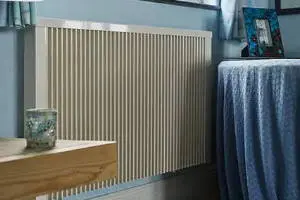Not sure how to decide between electric vs gas heating? Our handy guide has all the information you’ll possibly need to make the right choice for your home.
Choosing the right energy source for heating the home is one of the most significant challenges that any homeowner ever faces. After all, keeping your family warm throughout the colder months without breaking the bank or causing excessive damage to the environment should be at the top of everyone’s agenda.
The debate regarding electric vs gas heating doesn’t have a definitive answer, which is why understanding the pros and cons of each is vital. It’s always worth getting the opinion of experienced specialists in both types of heating in order to help you make the right choice for your home and family.
Electric vs gas heating: the definitions
Before analysing the pros and cons of any heating system, you must first gain a clear understanding of what they both are. Of course, one uses gas to power the heating system while the other uses electricity but you also need to consider how they work.
Gas heating systems may be run on liquid petroleum gas (LPG) or oil-based. Either way, the system will probably use a central boiler – hence the name central heating – to heat fuel and water. They are subsequently transported to radiators through underfloor heating pipes, which then allows heat to escape and warm the room.
They are usually controlled via a single thermostat situated in the property. You set the thermostat to your preffered ambient temperature, and the boiler works to heat the radiators until the thermostat detects the air has reached that temperature. If you wish some rooms to be warmer or colder than others, you can adjust the dials on each individual radiator but this doesn’t affect the energy consumption of the boiler.
It’s worth noting that some areas in the UK, especially coastal areas, don’t have access to gas heating as it’s not possible to install mains gas pipes. Therefore electric heating is more prelevant.
Electric heating systems rely on separate heating appliances in individual rooms controlled with individual thermostats Examples are bar electric heaters, panel heaters and electric radiators.
Electric heaters run off a home’s mains electric system and can operate in conjunction with solar panels.

Electric heating: the pros and cons
The positives of electric radiators
- Greater control over temperature. As most electric radiators have an individual thermostat allowing you to more accurately and precisely control the temperature in each room, you’re less likely to waste energy using heat when you don’t need it.
- Easy maintenance: Electric radiators are self contained, and require no maintenance once they’ve been fitted.
- Can be 100% efficient. The popular belief is that all electric products are 100% efficient, although this is true, depending on the design, not all of the energy all electric radiators consume is released as heat. Although some are. Always check with the manufacturer the official energy input and output of a radiator.
- Eco-friendly energy: electric heaters do not directly cause any carbon emissions. So, if the electricity itself comes from a renewable source like solar power, or if you sign up to a green electricity provider it’s a better solution for the environment.
- No noise: Electric radiators are silent. This is vastly different to radiators, where you will hear water along with various creaks due to the expansion and contraction of pipes.
- Fitted in just one day – Unlike wet systems which use pipes and may require extensive upheaval and mess to fit, electric radiators can be installed, up and running in just a few hours.
- Can be retro fitted – An electric heating system can be installed in stages, so you’re able to add extra radiators into your home gradually. Perfect for home renovations, as you don’t need to wait for heat in rooms that you’ve completed. You can also use electric heaters in a portable capacity until you’re ready for them to be installed on the wall.
The negative of electric radiators
- Asbestos: asbestos is very dangerous and can be found in some old electric storage heating systems. Thankfully, this is not an issue for newer models.
- Outdated appeal: while newer models are designed with modern trends in mind, some people still find that the look of certain models of electric heating are a little outdated.

Gas heating: the pros and cons
Like electric heating, gas heating has both positive and negative attributes.
The positives of gas heating
- Design: There are several styles of boiler and radiators that can be used within your gas central heating system. This gives you wider creative control of the look of your home.
- Easy replacements: A new gas boiler isn’t a cheap replacement, but the added efficiency compared to running an older model should pay for itself.
The negative of gas heating
- Not as eco-friendly: burning fuel for your heating will naturally leave a carbon footprint. However, modern boilers and gas radiators are more efficient than ever.
- Servicing: a Gas Safe heating engineer or plumber will need to complete an annual service of your gas boiler.
- Boiler breakdowns: if the boiler breaks down, you will be without heating throughout the home. Electric heating problems are often localised to one room.
- Leaks: it’s not a particularly common issue with new systems, but gas heating can run the risk of carbon monoxide leaks, which can be a silent killer.
- Maintenance: Radiators may need to be maintained for rust and bled to remove any build up of air.

Electric vs gas heating: the verdict
If going green is your aim, electric heating is the best solution while it can also be considered safer due to eliminating the risk of leaks. Still, gas central heating has become more efficient, meaning a lower carbon footprint. If you cannot decide between the two, hybrid solutions are possible too.
Gas central heating is traditionally cheaper to run than electric heating – depending on the model of electric radiators you’re using. However, with rising gas prices coupled with the superior temperature control of newer, electric heaters (some electric heaters have apps that allow you to control each individual heater in your home via your phone, from wherever you are), the cost difference is negligible. Gas central heating requires regular maintenance, whilst electric heating doesn’t, which can also be a cost saver. It’s also less expensive to install from scratch since extensive pipework isn’t required.
Ultimately, the right option is one that aligns to your needs as a homeowner, so consider what you’re likely to need both right now and in the longer term to help inform your decision.


